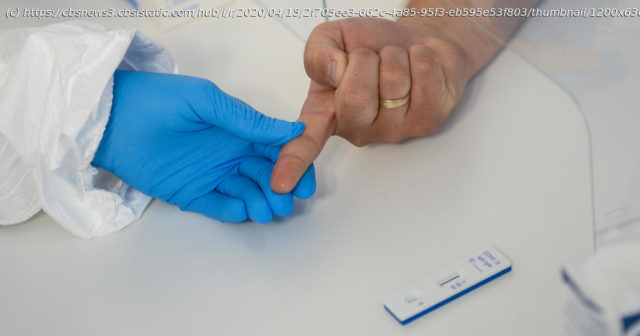Having the coronavirus antibodies is only one piece of the puzzle.
The Food and Drug Administration has granted emergency authorization to a dozen coronavirus antibody tests, and more than 200 others are currently on the market. One authorized company, Roche, claims its test is 100% accurate at finding coronavirus antibodies in the blood and 99.8% accurate at ruling them out.
Many people who got sick in recent months but didn’t get tested for COVID-19 have been left wondering whether they had the coronavirus. Many others who didn’t get sick could have also been infected with the virus and not even known it. People in both groups are now looking to antibody tests for possible answers.
Antibodies are proteins the body makes to attack a virus. If somebody has a certain antibody it could mean that they were infected in the past — whether they knew it or not. Dr. Shoshana Ungerleider, an internal medicine physician at Sutter Health in San Francisco told CBSN that having specific antibodies «means you’ve been exposed to that virus, or you’ve had a vaccine for it.»
However, according to CBS News medical contributor Dr. David Agus, many antibody tests on the market right now are «advertising claims that make no sense.» He said that too little is known about the coronavirus to rely on the results of most of the current antibody tests.
Tests with higher rates of false positive results could mistakenly lead people to believe they have antibodies when they really don’t. False negatives could lead people to believe they don’t have antibodies when they actually do.
«Aside from this latest FDA-approved antibody test that we’re hearing about that is highly accurate, I should also point out that we don’t even know if most of the other hundred or so tests that are out there on the market are even close to being that accurate,» Underleider said.
Домой
United States
USA — mix Should I get a coronavirus antibody test? Experts explain what we know...






